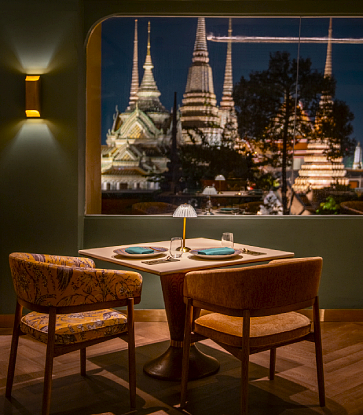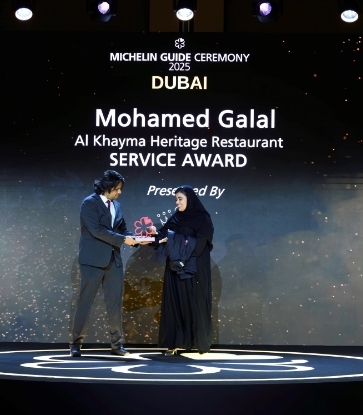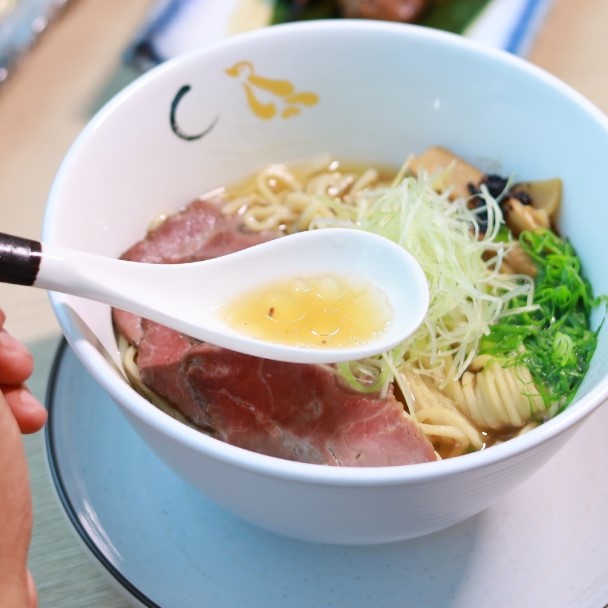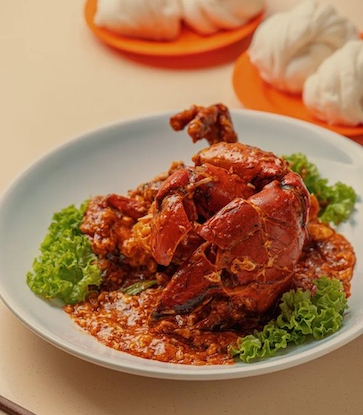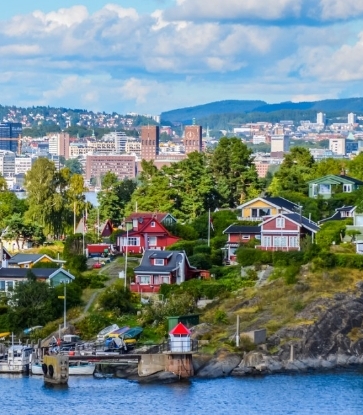Dubai’s Financial District, known for its sharp suits, sophisticated business lunches, and swanky restaurants, is also home to popular home-grown kitchen, MICHELIN-selected and Green Star recipient, Boca.
At first glance, this Mediterranean-inspired restaurant is no different to its swish neighbouring terrace bars and eateries, but scratch the surface and you’ll find pioneering eco initiatives are hard at play here, earning it a MICHELIN Green Star. Boca's Executive Chef Patricia Roig tells us more.
SIMILAR: This Dubai restaurant's aim in sourcing its products locally

“In essence, Boca's sustainability mission is to demonstrate that a successful restaurant can also be environmentally responsible and contribute to a more sustainable future,” says chef Patricia. This mission is not mere lip service. Unlike some restaurants claiming eco-friendly practices with little proof in the pudding, Boca is loud and proud about its customs, openly publishing its carbon emissions report, local ingredients guide, and renewable energy certificates online 一 a refreshing transparency many others could adopt.
From the in-house mixologists obsessed with finding ways to reuse food peels, to the chefs in the kitchen sourcing local produce and reducing plastic, the sustainability ethos at Boca influences every aspect of the restaurant, says chef Patricia. With the basics of recycling and waste-reduction nailed, she lists precise ordering, staff training, plant-base emphasis, seasonal ingredients, composting and aligned partnerships as fundamental for the slick functioning of the restaurant’s sustainability objectives.
“Our goal is to maximise our positive impact through consistent and conscious efforts,” she says.
“Building relationships with local suppliers can be time-consuming, but it's essential for reducing our carbon footprint.”

How do these efforts impact the menu we wonder? Chef Patricia says these initiatives result in a dining experience that is both delicious and environmentally conscious. “Reducing food waste inspires innovative menu planning. We try to find a way to maximise the usage of the whole ingredient, plus, careful sourcing of seafood ensures that the menu features only sustainable options, protecting marine ecosystems.” Getting creative in the kitchen is proves key as chef Patricia describes the countless ways to repurpose waste and peels. From turning stale bread into breadcrumbs, citrus peels into infused oils, and dehydrating fruit for flavorful garnishes, the team are determined to find new ways to make waste wonderful.
Image credit: Nadia Michael/Boca
What’s more, prioritising local ingredients not only reduces transportation emissions but supports local farmers, creating a menu which evolves with the seasons and champions ingredients that naturally thrive in those months of the year.
But despite the clear benefits, chef Patricia acknowledges that finding eco-conscious solutions in a thriving modern business is not always easy. “Running a sustainable restaurant often presents significant challenges, however, it's becoming increasingly clear that sustainability is not just a trend but a necessity for long-term success,” she adds.
When asked about her next steps towards sustainability, it’s clear chef Patricia’s efforts are not only for the region but for the whole world. “My real dream will be to implement advanced water-saving technologies and practices to reduce water consumption, as we see how every year we are facing bigger dry seasons that deeply affect the whole planet,” she says.
SIMILAR: What is a MICHELIN Green Star?

“Remember,” she adds, “sustainability is a journey, not a destination 一 our industry will last forever, (I can’t imagine a world without restaurants!) which means we need to build a strong and durable system for the generation that will follow us.”
Illustration image: EKaterina Korytko/Boca






